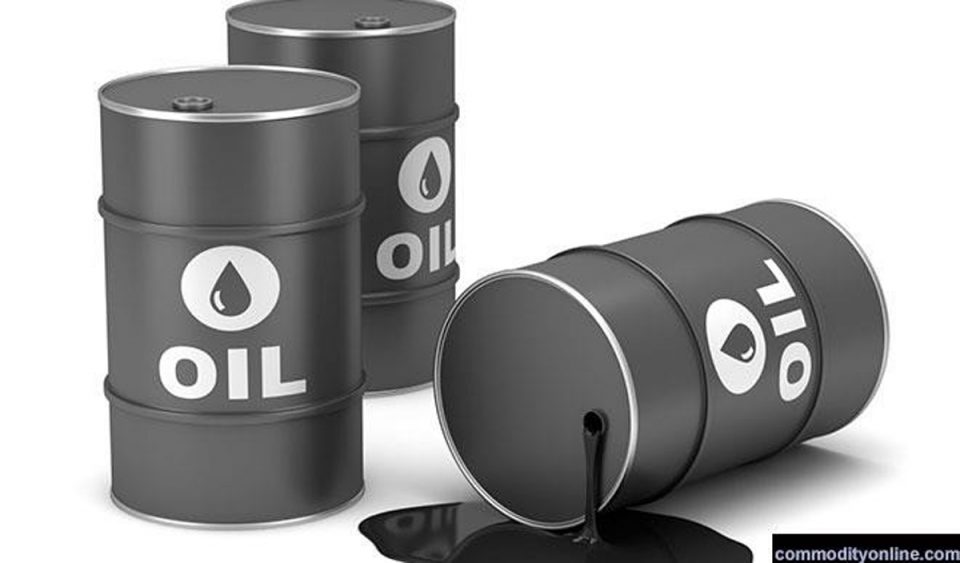Photo caption: Oil
*Tariffs are already slashing U.S.-China container traffic, hitting shipping and aviation demand, with trucking and diesel next in line.
*Shipping firms and airlines report cancellations and weaker bookings.
*Major agencies have slashed oil demand forecasts—IEA, OPEC, and EIA all revised 2025 growth down by 150,000–400,000 bpd amid worsening trade and economic outlooks.
Signs have emerged that the U.S.-China trade war is already hitting oil demand in the shipping and aviation sectors, and this weakness could soon move into the U.S. trucking business and reduce diesel demand.
Container traffic from China to the United States is plummeting, while U.S. airlines warn of a hit to consumer spending amid weakened consumer sentiment with the tariffs and expectations of higher inflation.
Shipping and aviation account for a combined 10% of global oil consumption, and the decline in container shipping traffic is set to hurt demand, a decline that could become worse if the U.S. trucking business suffers—which analysts expect it will.
Hapag-Lloyd, one of the world’s biggest container shipping firms, told Reuters last week that customers had already canceled 30% of shipments from China to the United States due to the trade war and the escalation of the U.S. tariffs on imports of Chinese goods.
But demand for shipments from Southeast Asian nations such as Thailand, Vietnam, and Cambodia has spiked, according to a spokesperson for Hapag-Lloyd.
Mitsui O.S.K. Lines Ltd, the Japanese shipping giant, expects a decline in profits this year, also due to expected slow cargo movement amid “concerns over inflation and global economy stagnation due to the U.S. tariff policies.”
Leisure is also being hit with weakened consumer sentiment—Norwegian Cruise Line Holdings says it has seen softening in its 12-month forward booked position.
“While we recognize there may be potential pressures on the top line, we believe these can be effectively offset by the continued execution of our cost savings initiatives,” president and CEO Harry Sommer said this week.
London-based shipbroker Clarksons issued a profit warning, noting that “uncertainty arising from the potential of a global trade war has escalated.”
Gene Seroka, executive director of the Port of Los Angeles, told CNBC this week he expects cargo volume from China to plunge by 35% next week compared with the same period in 2024, as U.S. retailers halt shipping from China due to the tariffs.
“Realistically speaking, until some accord or framework can be reached with China, the volume coming out of there — save a couple of different commodities — will be very light at best,” Seroka told CNBC.
The plunge in shipping routes from China to the U.S. will hit American trucking, Apollo Global Management said in a presentation to clients at the end of April.
By mid-May, containerships to U.S. ports will grind to a halt, by late May, trucking demand will come to a halt, early June will see layoffs in the trucking and retail industry, and recession is coming in the summer of 2025, Apollo Global Management predicts.
Apart from business confidence, consumer confidence in the U.S. is also plummeting, and a record-high share of consumers think business conditions are worsening, according to Apollo’s dire forecasts, which say there will be empty shelves and Covid-like shortages soon.
Airlines are also noting a decline in leisure demand as consumers spend less, anticipating higher inflation and a worsening economy.
“The year started out very strong. However, that changed and we saw demand weaken as the quarter progressed, especially in leisure demand,” Southwest Airlines’ President and CEO Bob Jordan said on the earnings call last week.
Southwest Airlines did not reiterate its profit guidance for 2025, as “Amid the current macroeconomic uncertainty, it is very difficult to confidently forecast given recent and short lived trends,” Jordan added.
With the current U.S. Administration, there is always a chance of a flip and reversal in the tariff and trade wars, but business and consumer sentiment has been eroded in the near term.
Major investment banks already forecast recession as a base-case scenario, while oil demand forecasters, including the International Energy Agency (IEA), OPEC, and the U.S. Energy Information Administration (EIA), have downgraded their demand growth outlooks.
The IEA cut its 2025 oil demand growth estimate by 300,000 barrels per day (bpd), OPEC revised down its demand growth forecast by 150,000 bpd, and the EIA slashed its growth projection by 400,000 bpd.
=== Oilprice.com ===




